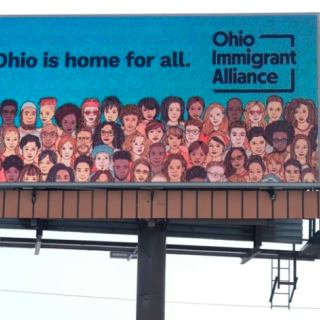Advertisement
National Institutes of Health (NIH)
Centers for Disease Control and Prevention (CDC)
U.S Food and Drug Administration (FDA)
These are America’s prestigious medical research center, health protection agency, and the agency that controls and supervises our food safety, medications, and vaccines. They are three agencies within the U.S. Department of Health and Human Services (HHS), whose mission is to “enhance the health and well-being of all Americans by fostering sound, sustained advances in the sciences underlying medicine, public health, and social services.” They are three of the longest standing pillars of scientific strength, providing decades of comfort to Americans as voices of protection, research, and fact.
Fear and divisiveness have impugned these pillars of scientific strength, and have cast doubt upon their work.
Now more than ever, it is imperative Americans have trust in our government’s science. Our country is currently experiencing close to 1,000 deaths per day from COVID-19, or roughly 3 times the number of deaths from flu. 215,000 Americans have already died. Our country has suffered devastating human and economic consequences andwe cannot allow our trust in science to become an additional loss.
American trust in science has been damaged. Scientific processes and recommendations have become politicized. Conspiracy theories have led Americans to believe COVID-19 is an exaggerated threat or even a nonexistent virus. These variants of science denial cause some people to refuse to wear a mask or maintain social distancing. Scientists and public health professionals have great worry that a future safe and life-saving vaccine will be undermined, even if the vaccine is approved by the FDA.
Our trust in what scientific information we believe has been damaged. Damaged by politicians and non-public experts, stating falsehoods as truth, or exaggerating treatments as “cures”, or stating prematurely a drug or intervention has been “proven to treat” the virus. We have experienced a malaria drug (hydroxycholoroquine) wrongly touted as a treatment for COVID-19 and inaccurate statements about the benefits of plasma.
Even testing for the virus has become controversial with some people believing testing alone can serve as adequate prevention for the spread of this virus and the wearing of masks and social distancing are not necessary.
In our world of specialized health care, we know that not every doctor, every nurse, and every scientist, has the same expert voice. If you need a complicated back surgery, you would not choose just any doctor, such as a dermatologist to do your surgery…you would seek out a neurosurgeon. In the same way we cannot allow opinions, even within the medical establishment, of having stronger voices over public health experts just because they have a title or position. A radiologist may be an educated physician but a radiologist is not a public health expert unless he or she has studied public health.
What do we know for sure?
We know wearing a mask works to decrease the spread of COVID-19.
We know the use of social distancing, or the practice of increasing space between ourselves and others, helps reduce the risk of transmission of COVID-19.
We know the use of handwashing helps prevent COVID-19 infection.
We know there is not a cure for COVID-19.
We know promoting “herd immunity” in Michigan will likely lead to 30,000 more deaths in our state!
We know testing alone is not how you control a pandemic and protect yourself and others.
We know wearing a mask and minimizing group gatherings are the principle preventative measures for COVID-19.
We know COVID-19 tests received within a few days of being exposed to the virus are not very good at detecting whether or not we are infected, as it often takes more than a day or two for the virus to grow in our body and be discovered as a positive test result.
We know rapid tests are best at determining whether we were infected 4 or 5 days earlier.
So what is the point of massive testing?
People who are infected with COVID-19 may be asymptomatic and if told of a positive test result, the use of quarantines and isolation can be implemented to reduce the spread and contain this pandemic.
We know many people who have recovered from COVID-19 are now experiencing medical complications long after their initial diagnosis, so it is important for all of us to know if our body has been afflicted by this virus so we can best monitor future ailments.
Francis Collins, director of the NIH, said it would be a “tragedy” if the U.S. turned its back on a safe and effective vaccine, and “we won’t be able to put this behind us even though we have the scientific tools to do that. That is an absolutely terrible outcome for a technologically advanced society.”
Let’s trust in our pillars of science and their long-standing and rigorous processes of approving vaccines. Let’s listen to these scientific voices share the results of their randomized clinical trials, and their independent reviews of data and safety monitoring. Let’s listen to their voices and not voices who seek to rush and push through potentially unsafe or ineffective vaccines.
The implications of falling trust in our scientific institutions “are potentially dire”, wrote seven former FDA commissioners. We are in the middle of a crisis in which a vaccine is desperately needed.
We must understand this and act accordingly because not doing so is literally a matter of life and death.
Nancy Hayward, a registered nurse with a master’s degree in public health, owns a consulting practice, Health Education Training and Consulting, in Ann Arbor, Michigan.



